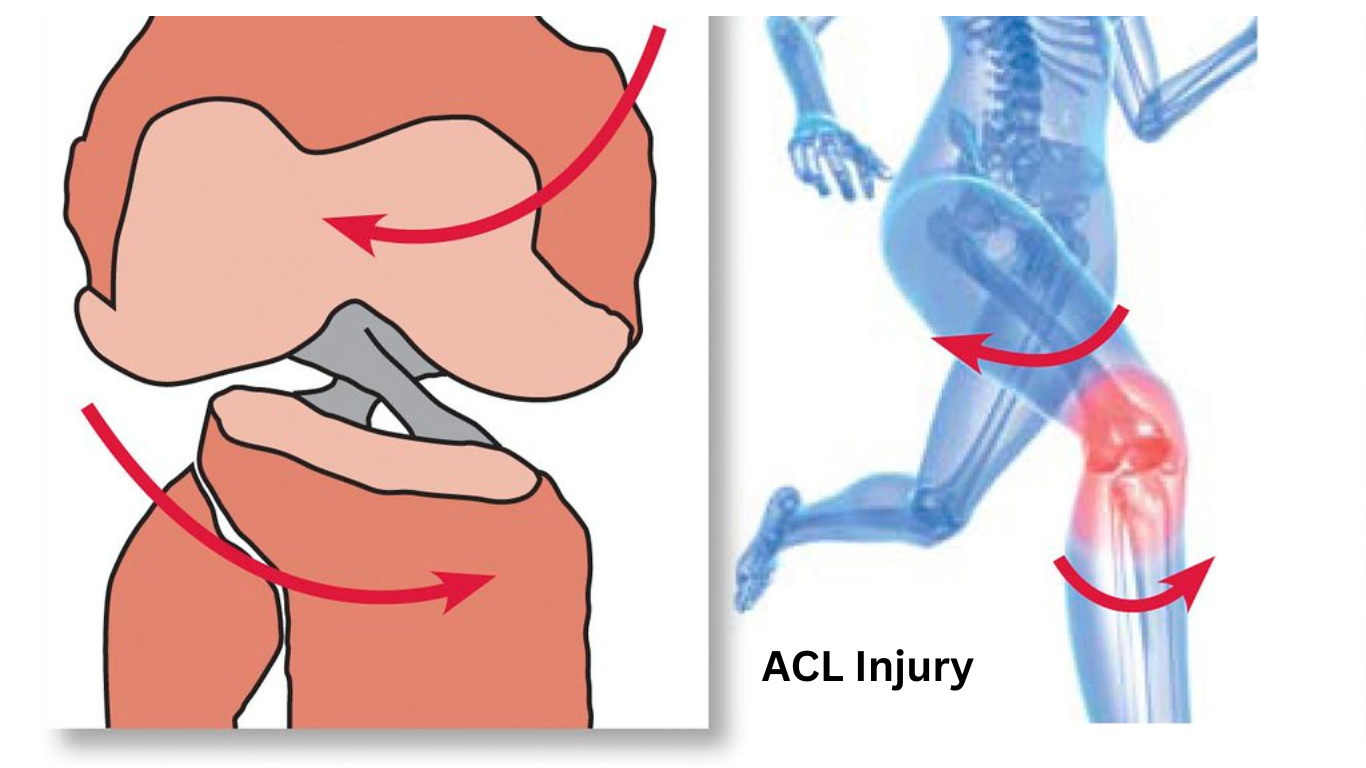Will I Regret Quitting a Sport? Discover the Consequences of Leaving the Game
Quitting a sport can result in regret later on. Here are some factors to consider before making that decision.
Deciding whether or not to quit a sport is a significant choice that can have long-term consequences. Many athletes face this dilemma at some point in their sporting journey. While there may be valid reasons for wanting to give up, it’s crucial to weigh the potential outcomes and reflect on your true feelings.
This article explores several key points to consider before quitting a sport, helping you make an informed decision and potentially avoid regret down the line. Remember, it’s essential to evaluate your motivations and weigh both the short-term and long-term effects of quitting before reaching a final verdict.
The Psychological Consequences Of Leaving A Sport
Leaving a sport can have significant psychological consequences, and the fear of regret is a common concern. However, it’s important to consider the individual’s overall well-being and future happiness when making this decision.
When contemplating quitting a sport, it’s natural to wonder about the potential consequences. While the physical ramifications are often clear, the psychological impact is equally important to consider. In this section, we will explore the psychological consequences of leaving a sport, focusing on the loss of identity and self-worth, the feelings of regret and guilt, and the impact on emotional well-being.
Loss Of Identity And Self-Worth:
- When you quit a sport, it can lead to a loss of identity as you no longer associate yourself with being an athlete.
- Your self-worth may be influenced by the status and recognition that comes with being part of a team or excelling in a sport.
- Without the sport to define you, you may feel a sense of emptiness or confusion about your place in the world.
Feelings Of Regret And Guilt:
- It is common to experience regret after quitting a sport, especially if it was a passion or something you invested a significant amount of time and effort into.
- Guilt may arise from disappointing teammates, coaches, or yourself for not following through with your commitment.
- These emotions can linger and impact your overall well-being if not addressed and processed.
Impact On Emotional Well-Being:
- Leaving a sport can result in a range of emotions, such as sadness, frustration, or a sense of loss.
- You may miss the camaraderie and social support that comes with being part of a team.
- A decrease in physical activity and the associated endorphin release can affect your mood and overall emotional well-being.
It is important to acknowledge and address these psychological consequences when contemplating quitting a sport. Understanding the potential impact can help you make an informed decision and take the necessary steps to maintain a healthy mindset throughout the process.
The Social Ramifications Of Quitting A Sport
Quitting a sport can have social consequences, leading to potential regrets later on. The decision may result in missed opportunities for teamwork, friendships, personal growth, and overall physical health. Consider the long-term implications before making a final choice.
Quitting a sport can have social consequences that go beyond just giving up a physical activity. The connections, support, and relationships you have within a sports team can greatly impact your social life. In this section, we will explore the loss of social connection and support, strained relationships with teammates and coaches, and negative effects on social skills development.
Loss Of Social Connection And Support:
- Say goodbye to a community: Quitting a sport means leaving behind a group of people who share a common interest and passion. The camaraderie and sense of belonging that come from being part of a team can be difficult to replace.
- Support system vanishes: Sports teams often provide a support system that extends far beyond the playing field. Teammates offer encouragement, motivation, and a sense of accountability. When quitting, you may lose this network of support.
- Miss out on team events and bonding: Sports teams frequently organize social events, team-building activities, and trips. Choosing to quit could mean missing out on these opportunities to connect with teammates and form lasting friendships.
Strained Relationships With Teammates And Coaches:
- Alteration of dynamics: Leaving a sports team can strain relationships with teammates. Once seen as part of the team, quitting may change how you are perceived by your former teammates.
- Potential resentment: Teammates may feel let down or resentful when someone quits, especially if they rely on that person during games or practices. This resentment could lead to strain within the friendship.
- Detrimental effects with coaches: Quitting can strain relationships with coaches, as they may feel disappointed by your choice to leave the team. Their expectation that you would remain committed to the sport may be dashed.
Negative Effects On Social Skills Development:
- Missed opportunities for social growth: Sports offer valuable opportunities to enhance social skills, such as communication, teamwork, and leadership. Quitting a sport might deprive you of these chances for personal growth.
- Decreased confidence in social settings: Excelling in sports can boost self-confidence, positively influencing one’s ability to navigate social situations. Quitting a sport may result in a decline in confidence, making it harder to interact with others.
- Limited exposure to diverse social groups: Sports teams bring together individuals from different backgrounds and experiences. By quitting, you might miss out on the chance to broaden your social circle and interact with a diverse range of people.
Remember, the decision to quit a sport should be weighed carefully, taking into account both the physical and social consequences. While everyone’s experiences may differ, understanding the potential social ramifications can help inform your decision-making process.
Decreased Physical Fitness And Health
Quitting a sport could lead to decreased fitness and potential health issues. One may regret the choice due to the negative impact on physical well-being.
When you make the decision to quit a sport, you may wonder if you will have any regrets. One aspect to consider is the impact it can have on your physical fitness and health. By quitting a sport, you may experience a decrease in endurance and strength, an increased risk of weight gain and chronic diseases, and the potential for developing sedentary lifestyle habits.
Loss Of Endurance And Strength:
- Less practice and participation in a sport can lead to a decline in overall endurance and strength.
- Without the regular training and physical activity that comes with playing a sport, your body may not maintain the same level of fitness.
- Decreased endurance and strength may make it more challenging to engage in physical activities and keep up with everyday tasks.
Increased Risk Of Weight Gain And Chronic Diseases:
- Quitting a sport can contribute to weight gain as you may no longer burn calories through physical activity.
- The absence of regular exercise can impact your body’s metabolism, making it easier to gain weight.
- Weight gain increases the risk of various chronic diseases such as obesity, heart disease, and diabetes.
Potential For Developing Sedentary Lifestyle Habits:
- With the absence of regular sports practice and games, there is a higher chance of adopting a sedentary lifestyle.
- Sedentary behaviors like sitting for long periods can negatively affect your health, leading to issues such as weight gain, poor blood circulation, and muscle weakness.
- A sedentary lifestyle can also impact your mental well-being, increasing the risk of anxiety and depression.
Making the decision to quit a sport is a personal one, but it is essential to consider the potential consequences on your physical fitness and health. From the decreased endurance and strength to the increased risk of weight gain and chronic diseases, and the possibility of developing sedentary habits, quitting a sport can have lasting effects on your overall well-being.
It is crucial to find alternative ways to stay physically active and maintain a healthy lifestyle even if you decide to leave behind a sport you once enjoyed.
Impact On Long-Term Physical Development
Quitting a sport can have a significant impact on long-term physical development. Without regular exercise and training, you may experience a decline in overall fitness levels and potential regrets later on. Stay active to maintain a healthy body and enjoy the benefits of continuous physical activity.
Participating in organized sports offers various benefits for individuals, including physical fitness, teamwork skills, and personal growth. However, there may come a time when you start questioning whether it’s worth continuing with a particular sport. Quitting a sport can have long-term implications on your physical development.
Let’s explore some of these impacts:
Delayed Motor Skill Acquisition:
- Learning motor skills is a crucial aspect of sports participation. Quitting a sport prematurely can lead to delayed motor skill acquisition, preventing you from mastering the necessary techniques.
- Without regular practice and exposure to the sport’s movement patterns, you may struggle to develop essential skills such as coordination, agility, and balance.
- Over time, the lack of motor skill development can hinder your overall physical performance and limit your potential in future athletic pursuits.
Reduced Bone Density And Muscle Mass:
- Engaging in regular physical activity, such as sports, contributes to the development of strong bones and muscles. When you quit a sport, you may experience a decline in bone density and muscle mass.
- The physical demands of sports stimulate the body to build and maintain bone tissue. Without this stimulus, bones can become weaker and more susceptible to fractures and injuries.
- Additionally, the decrease in physical activity associated with quitting a sport can lead to a loss of muscle mass. Weaker muscles not only affect your athletic performance but also impact your overall strength and functional abilities.
Potential For Developmental Injuries:
- Sports involve repetitive movements and high-impact actions, which increase the risk of injuries. However, quitting a sport without proper conditioning and injury prevention measures can also pose potential risks.
- Abruptly stopping a sport denies your body the chance to adjust gradually, leading to decreased flexibility and weakened structures.
- Tendons, ligaments, and muscles may lose their adaptation to the demands of the sport, making you more susceptible to injuries should you decide to return or transition to another sport in the future.
Remember, every individual’s circumstances and goals are unique, and there may be valid reasons for leaving a sport. However, it’s essential to consider the potential impacts on your long-term physical development before making a final decision.
Adverse Effects On Time Management And Discipline

Quitting a sport can have adverse effects on time management and discipline, leading to potential regrets in the long run. Without the structure and routine provided by sports participation, individuals may struggle to manage their time effectively and maintain discipline in other areas of life.
Difficulty Balancing School/Work And Other Commitments:
- Balancing a sport with school or work can be challenging, as it requires juggling multiple responsibilities.
- Here are some reasons why quitting a sport may adversely affect your time management and discipline:
- Limited time availability: Being actively involved in a sport requires dedicating a significant amount of time to practices, competitions, and other related activities. Quitting a sport frees up time that can be allocated to other commitments, but it can also lead to a feeling of emptiness or having more free time than you know what to do with.
- Decreased accountability: When you are part of a team or club, there is a sense of responsibility towards your teammates and coaches. Quitting a sport means losing that accountability and may result in a lack of structure or urgency to manage your time effectively.
- Difficulty prioritizing: Without the structure of a sport, it can become difficult to prioritize your tasks and commitments. Without clear deadlines and goals set by the team or coach, it is easy to lose focus and become disorganized.
- Procrastination: Quitting a sport may lead to a decrease in discipline, making it easier to procrastinate on important tasks. Without regular practice sessions and training schedules, you may have a tendency to put off studying, completing assignments, or meeting other deadlines.
- Overcompensation: In some cases, individuals who quit a sport may overcompensate for the lost time and energy by taking on too many commitments. This can lead to burnout and further difficulty managing time effectively.
- Missed opportunities for growth: Being part of a sport encourages discipline, time management, and the ability to meet goals. Quitting a sport could mean missing out on valuable opportunities for personal growth and development in these areas.
Lack Of Structure And Routine:
- Sports provide a structured routine that helps individuals manage their time effectively. Quitting a sport may lead to a lack of structure and routine, resulting in challenges like:
- Unclear schedule: Without the fixed practice sessions and competitions that a sport provides, it can be difficult to establish a clear daily schedule. This can make it challenging to stay organized and manage time efficiently.
- Loss of motivation: The sense of routine that comes with participating in a sport provides motivation to stay on track with other activities. Without it, maintaining motivation can be a struggle, leading to procrastination and decreased productivity.
- Disruption of healthy habits: Being part of a sport often means adhering to a set training regimen, including physical exercise and proper nutrition. Quitting a sport may disrupt these healthy habits and make it more challenging to maintain a healthy lifestyle.
- Increased distractions: Without the structured routine of a sport, there is more room for distractions to creep in. It can be easy to fall into unproductive habits or spend excessive time on leisure activities instead of focusing on important tasks.
- Lack of time management skills: Participating in a sport requires effective time management skills. Quitting a sport may not provide the same opportunities to develop and refine these skills, potentially hindering your ability to manage time efficiently in other areas of life.
Decreased Ability To Meet Deadlines And Goals:
- Committing to a sport often requires meeting deadlines and striving towards specific goals. Quitting a sport may impact your ability to meet deadlines and goals due to factors such as:
- Lack of accountability: Being part of a sport means being accountable to teammates, coaches, and yourself. Quitting a sport removes this level of accountability, making it easier to procrastinate or become complacent.
- Difficulty setting and achieving goals: Participating in a sport cultivates goal-setting skills and the drive to achieve those goals. Without the structure of a sport, setting and achieving goals can become more challenging, leading to a decreased sense of accomplishment.
- Lack of discipline: Sports help develop discipline, which is essential for meeting deadlines and achieving goals. Quitting a sport may lead to a decline in discipline, making it harder to stay focused and motivated in other areas of life.
- Inconsistent work habits: Being part of a sport often requires consistent practice, training, and preparation. Quitting a sport may result in inconsistent work habits, making it difficult to consistently allocate time and effort towards tasks and goals.
- Lost sense of purpose: For many individuals, participating in a sport provides a sense of purpose and direction. Quitting a sport can leave a void, making it harder to stay motivated and focused on meeting deadlines and goals.
Influence On College And Job Applications
Quitting a sport could have an influence on college and job applications. Potential regrets could arise from missed opportunities for leadership roles, team collaboration, and personal growth.
Sport is a significant part of many people’s lives. It teaches discipline, teamwork, and perseverance, and provides opportunities for personal growth. However, there may come a time when you consider quitting a sport. While this decision is entirely personal, it’s essential to consider the potential impact it may have on your college and job applications.
In this section, we will explore two key aspects: the impact on college applications and scholarships, as well as the limited extracurricular activities for resumes that may result from quitting a sport.
Impact On College Applications And Scholarships:
- College applications often highlight extracurricular activities and sports involvement. Quitting a sport might leave a gap in your extracurricular profile, which could affect the overall impression you make on admissions committees.
- Colleges and universities look for well-rounded individuals who demonstrate commitment, dedication, and the ability to manage their time effectively. Quitting a sport could raise concerns regarding your commitment and dedication to other activities and endeavors.
- If you were actively involved in a sport and achieved notable accomplishments, such as team captaincy or awards, these achievements can significantly strengthen your college application. Quitting a sport may mean losing the opportunity to showcase these accomplishments.
Limited Extracurricular Activities For Resumes:
- Extracurricular activities play a crucial role in highlighting your interests, skills, and dedication outside of your academic pursuits. Quitting a sport may limit the variety and depth of your extracurricular involvement, leading to a narrower range of experiences and interests to include on your resume.
- Demonstrating a diverse range of interests and involvement in various activities showcases your ability to multitask, manage time efficiently, and contribute positively to different communities. Quitting a sport may restrict your ability to showcase these valuable skills to potential college admissions officers or employers.
- Furthermore, many college and scholarship applications require you to provide details of your extracurricular involvement. Quitting a sport could result in a gap in your extracurricular section, raising questions about your ability to persist and remain committed to activities.
By quitting a sport, potential consequences may emerge that could affect your college and job applications. It’s crucial to carefully consider the impact on your extracurricular profile, limited activities for your resume, and the perceived lack of commitment or perseverance.
Make a decision that aligns with your personal growth and goals, but be aware of the potential repercussions. Ultimately, the choice is yours, and it’s essential to evaluate what best suits your individual circumstances and aspirations.

Identifying And Addressing The Underlying Reasons For Quitting
One should explore the underlying reasons for quitting a sport to determine if one will regret their decision. Identifying these factors allows for effective addressing and potential resolution, providing clarity and preventing potential future regrets.
Quitting a sport can be a tough decision, and it’s natural to wonder if you’ll eventually regret it. But before you make a final choice, take the time to understand the underlying reasons behind your decision. Identifying and addressing these reasons can provide clarity and peace of mind, helping you make a more informed choice.
In this section, we will explore three key aspects to consider when contemplating quitting a sport:
Exploring Personal Motivations And Goals:
- Reflect on why you initially joined the sport: Were you driven by a passion for the game, personal growth, or social connections?
- Reevaluate your current motivations and goals: Has your passion for the sport waned? Do you have other activities or interests that align better with your aspirations?
- Determine if the sport aligns with your long-term plans: Consider how the sport contributes to your overall well-being and if it supports your future aspirations.
Recognizing External Influences And Pressure:
- Evaluate external pressures: Are you feeling compelled to continue due to expectations from others, such as coaches, parents, or teammates?
- Assess the impact of negative experiences: Have you faced bullying, excessive competition, or conflicts that have diminished your enjoyment of the sport?
- Recognize the influence of social norms: Reflect on whether societal norms or peer pressure are shaping your decision to continue or quit.
Seeking Professional Guidance If Necessary:
- Consult with a coach or mentor: Seek the guidance of someone who understands your sport and can provide objective insights into your decision.
- Connect with a sports psychologist: If you are struggling with the emotional aspects of quitting, a mental health professional can help you navigate your feelings and make an informed choice.
- Explore alternative options: Consider transitioning to a different role within the sport or finding a new physical activity that better aligns with your current circumstances and goals.
Remember, quitting a sport does not necessarily equate to failure. It’s essential to prioritize your well-being, happiness, and personal growth. By taking the time to identify and address the underlying reasons for quitting, you can make a decision that brings you peace and ensures a positive future.

Credit: www.competitivedge.com
Finding Alternative Ways To Stay Active And Engaged
Discover alternative ways to engage in physical activity and keep yourself motivated after quitting a sport. Explore new hobbies, fitness classes, or outdoor activities that can provide excitement and fulfillment while staying active. Leave no room for regret as you embrace a dynamic and diverse approach to staying engaged.
Quitting a sport can be a big decision, and it’s natural to wonder if you’ll regret it. But fear not, because there are plenty of alternative ways to stay active and engaged. Whether you’re looking to try a new sport, join a recreational league, or explore fitness classes and outdoor adventures, there’s something out there to keep you moving and having fun.
Exploring Different Sports Or Activities
If you’re looking to replace the sport you’re quitting with something new and exciting, exploring different sports or activities is a great place to start. Here are a few options to consider:
- Martial arts: Discover the discipline and physical challenges of martial arts like karate, taekwondo, or Brazilian jiu-jitsu.
- Dancing: Get your groove on and stay fit with dance styles like salsa, hip-hop, ballet, or even ballroom dancing.
- Swimming: Dive into the refreshing world of swimming and enjoy a full-body workout while improving your stamina and flexibility.
- Rock climbing: Experience the thrill of conquering heights and working your muscles by taking up rock climbing at an indoor gym or outdoors.
- Yoga: Embrace the mind-body connection through yoga, improving your flexibility, strength, and peace of mind.
Joining Recreational Leagues Or Clubs
If you enjoy the camaraderie and competition of team sports, joining recreational leagues or clubs can provide you with a similar experience. Here’s why it’s worth considering:
- Social interaction: Forge new friendships and bond with like-minded individuals who share your passion for the sport or activity.
- Regular schedule: Recreational leagues and clubs usually have set schedules, so you can continue to enjoy the routine and structure of regular practices and games.
- Skill development: Joining a league or club allows you to keep improving your skills in a supportive environment, where you can learn from experienced players and coaches.
- Healthy competition: Embrace the competitive spirit and challenge yourself to get better while having fun with fellow athletes.
Participating In Fitness Classes Or Outdoor Adventures
If you prefer a more flexible and varied approach to staying active, participating in fitness classes or outdoor adventures might be the perfect fit. Here are some benefits to consider:
- Variety and flexibility: With fitness classes, you can try different workouts like Zumba, kickboxing, spinning, or cross-training, allowing you to switch things up and prevent boredom.
- Professional guidance: Qualified instructors lead fitness classes, ensuring that you’re performing exercises correctly, reducing the risk of injury, and maximizing your results.
- Adventure and exploration: Engage in outdoor adventures like hiking, cycling, kayaking, or paddleboarding, allowing you to enjoy nature while challenging your physical abilities.
- Personal growth: Trying new activities and pushing your limits can boost your confidence, resilience, and overall well-being.
Remember, quitting a sport doesn’t mean giving up on a healthy and active lifestyle. By exploring different sports or activities, joining recreational leagues or clubs, and participating in fitness classes or outdoor adventures, you can find alternative ways to stay active, engaged, and fulfilled.
So embrace the opportunity to try something new, and you may discover an even greater passion along the way.
Frequently Asked Questions On Will I Regret Quitting A Sport
Can Quitting A Sport Have Long-Term Consequences?
Quitting a sport may lead to missed opportunities for physical fitness, skill development, and social connections. It’s important to consider the potential impact on your future growth and overall well-being.
How Can Quitting A Sport Affect Mental Health?
Quitting a sport can impact mental health by causing feelings of regret, loss of purpose, and decreased self-esteem. It’s crucial to reflect on the emotional consequences of quitting before making a decision.
Will I Miss Out On Valuable Life Lessons By Quitting A Sport?
Quitting a sport can result in missed opportunities to learn about dedication, teamwork, goal-setting, and resilience. Consider the valuable life lessons you could gain from persevering through challenges.
Conclusion
Ultimately, the decision to quit a sport is a personal one that depends on various factors, including individual circumstances and goals. While the fear of regret may linger, it is important to remember that life is a constantly evolving journey.
Quitting a sport does not automatically equate to regret; it is simply a redirection of energy toward other endeavors that may bring equal or even greater fulfillment. By evaluating your reasons for quitting and considering the potential benefits, such as newfound freedom, personal growth, and opportunities for exploring new passions, you can make an informed choice.
It is essential to trust your intuition and listen to your inner voice, as nobody knows your needs and desires better than yourself. Ultimately, remember that quitting a sport does not define you, and there are numerous paths to happiness and self-discovery.
Trust in your decisions and embrace the opportunities that lie ahead.



